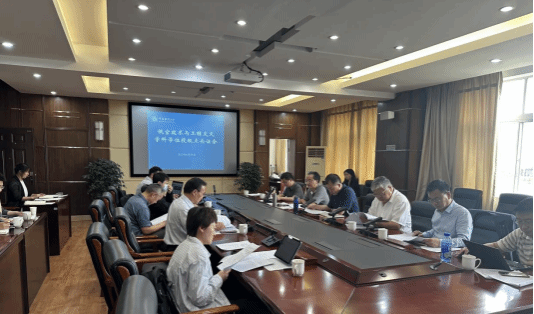To align with the national strategy for developing the low-altitude economy and to advance its application for a new pilot interdisciplinary degree, Yunnan University of Finance and Economics (YUFE) held a special evaluation meeting on the afternoon of June 19th. The meeting, held in Room 506 of the Zhiyuan Building, was presided over by Yu Nutao, a member of the University Party Committee and Vice President.

Vice President Yu specified that the Information School will lead the effort, focusing on the specialized area of "Low-Altitude Airspace Planning and Management" and deepening the integration of multiple disciplines. He instructed the participating units to complete faculty integration, justification of the program's unique features, and curriculum restructuring within the set timeframe. The application proposal, he stressed, should be developed based on three core principles: addressing an irreplaceable need within Yunnan, leveraging YUFE's unique interdisciplinary strengths, and ensuring the program's training objectives are precisely aligned with industry demands.
The attending experts carefully reviewed the presentation and discussed key aspects including the program's disciplinary scope, foundational basis, curriculum design, talent cultivation plan, and development roadmap. They offered constructive suggestions regarding interdisciplinary integration, the uniqueness of the training model, and resource allocation, which helped to further refine the research directions for the proposed Low-altitude Technology and Engineering sub-discipline.
Wang Rongdang, Director of the Development Planning Office, systematically outlined the application process, framing it around three key questions: the rationale for the program (the 'why'), its intended outcomes (the 'what'), and the implementation strategy (the 'how'). He emphasized that establishing an interdisciplinary program in the low-altitude economy is an essential move for YUFE to respond to national strategy and adapt to evolving disciplinary trends. He called for a university-wide effort, led by the Information School, that leverages the distinct advantages of various schools and pursues a differentiated competitive strategy to ensure a successful application.
Leaders from the Information School, the School of Logistics and Management Engineering, and the School of Tourism and Hotel Management presented comprehensive reports on the necessity, feasibility, and rationale of the proposed program.
Evaluation experts Wang Lin, Liu Fuhua, Liu Chunxue, Xiao Bin, and Yang Ying attended the meeting, along with the heads of the Development Planning Office, the Graduate School, and the Office of Academic Affairs.
